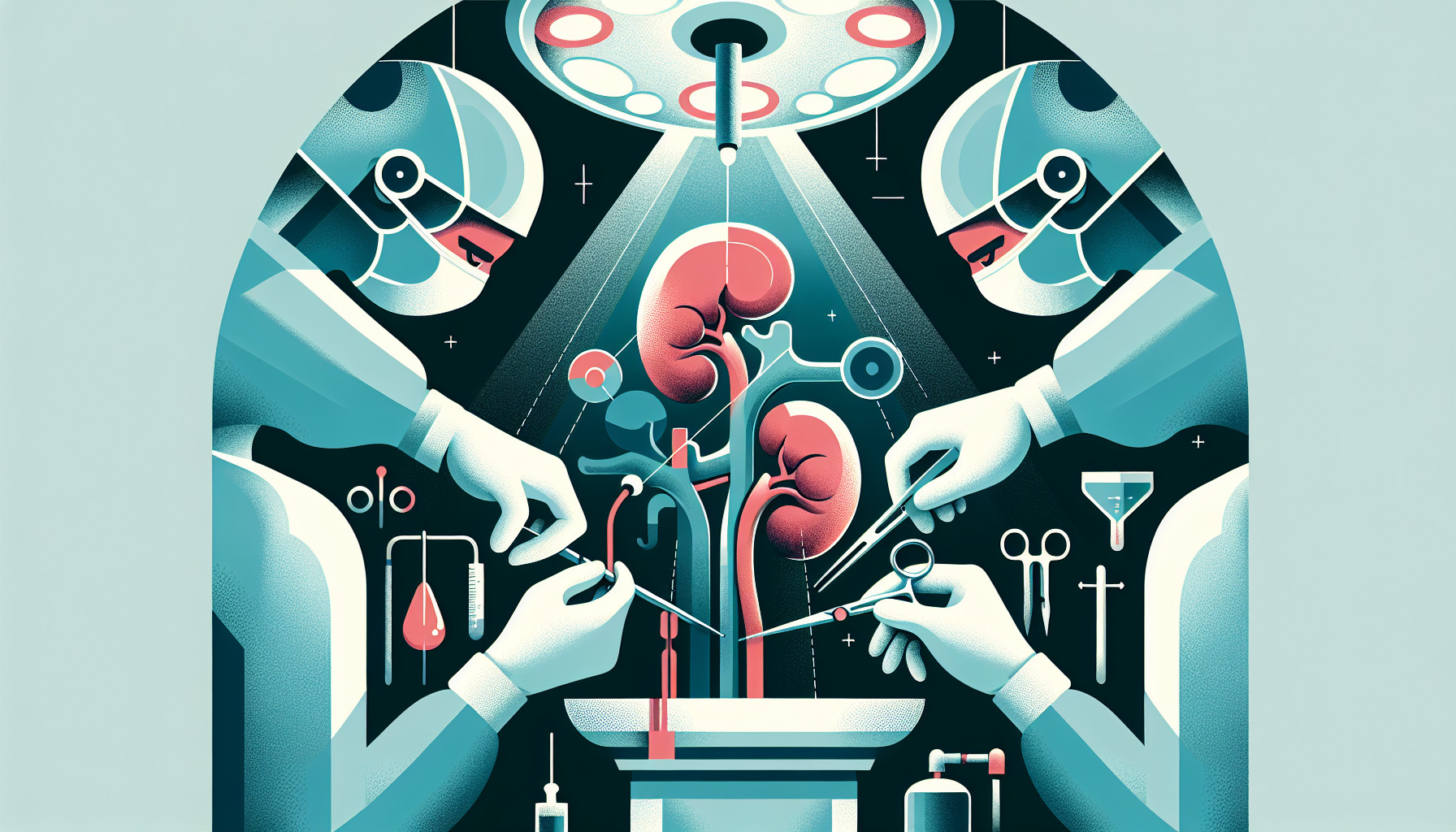Our Summary
This research paper studies the effectiveness of a specific kidney removal surgery (laparoscopic donor nephrectomy) in kidney donors who are obese. The study was carried out at Shahid Beheshti University Medical Science, Urology Center in Iran over a 10-year period. The researchers looked at the medical records of 1083 kidney donors and grouped them by their body mass index (BMI), which is a measure of body fat based on height and weight. They then compared the surgical results of these groups, looking at things like how long the operation took, whether the patient needed a blood transfusion, how long they stayed in the hospital, and any complications that happened after the surgery. They found that there was no major difference in surgical outcomes between the groups. This suggests that the surgery is safe and effective for obese kidney donors, with no significant increase in post-surgery complications.
FAQs
- What was the main focus of the research conducted at Shahid Beheshti University Medical Science?
- How did the researchers measure the body fat of the kidney donors studied in the research?
- Did the study find any significant difference in surgical outcomes between obese and non-obese kidney donors?
Doctor’s Tip
A doctor may tell a patient undergoing laparoscopic nephrectomy to follow their post-operative care instructions closely, including taking pain medication as prescribed, avoiding heavy lifting, and keeping the incision site clean and dry. They may also recommend gradually increasing physical activity as tolerated and staying hydrated to aid in the healing process. Additionally, the doctor may advise the patient to attend follow-up appointments to monitor their recovery and address any concerns or complications that may arise.
Suitable For
Patients who are typically recommended for laparoscopic nephrectomy are those who require kidney removal due to conditions such as kidney cancer, kidney stones, kidney donation, or kidney transplant. Additionally, laparoscopic nephrectomy may be recommended for patients who have a smaller tumor size, earlier stage kidney cancer, or who are at a lower risk for complications during surgery. It is important for patients to discuss their individual medical history and condition with their healthcare provider to determine if laparoscopic nephrectomy is the best treatment option for them.
Timeline
Before laparoscopic nephrectomy:
- Patient undergoes medical evaluation to determine if they are a suitable candidate for surgery.
- Patient meets with their healthcare team to discuss the procedure, risks, and benefits.
- Pre-operative testing is conducted, including blood tests, imaging studies, and possibly a kidney function test.
- Patient follows pre-operative instructions, such as fasting before surgery and stopping certain medications.
After laparoscopic nephrectomy:
- Patient is monitored closely in the recovery room immediately after surgery.
- Pain medication is provided to manage any discomfort.
- Patient may be discharged from the hospital within a few days, depending on their recovery progress.
- Follow-up appointments are scheduled to monitor the patient’s healing and kidney function.
- Patient may need to make lifestyle changes, such as avoiding heavy lifting and strenuous activity for a period of time.
- Long-term follow-up is recommended to monitor the remaining kidney’s function and overall health.
Overall, the timeline for a patient before and after laparoscopic nephrectomy involves thorough pre-operative preparation, the surgery itself, and post-operative care to ensure a successful recovery.
What to Ask Your Doctor
- What are the potential risks and complications associated with laparoscopic nephrectomy?
- How long is the recovery time after laparoscopic nephrectomy?
- What are the long-term effects on kidney function after undergoing laparoscopic nephrectomy?
- Are there any specific dietary or lifestyle changes I should make before or after the surgery?
- How experienced is the medical team in performing laparoscopic nephrectomy procedures?
- Will I need any additional tests or evaluations before the surgery?
- Are there any alternative treatment options to consider before undergoing laparoscopic nephrectomy?
- What is the success rate of laparoscopic nephrectomy in terms of removing the kidney and preventing complications?
- How often do complications occur after laparoscopic nephrectomy, and what are the most common complications?
- What is the expected outcome for my specific case, considering my BMI and overall health condition?
Reference
Authors: Simforoosh N, Varyani M, Radfar MH, Aslani A, Honarkar Ramezani M, Farshid S, Bonakdar Hashemi M. Journal: Exp Clin Transplant. 2021 Jan;19(1):20-24. doi: 10.6002/ect.2019.0381. Epub 2020 Jun 2. PMID: 32490760
